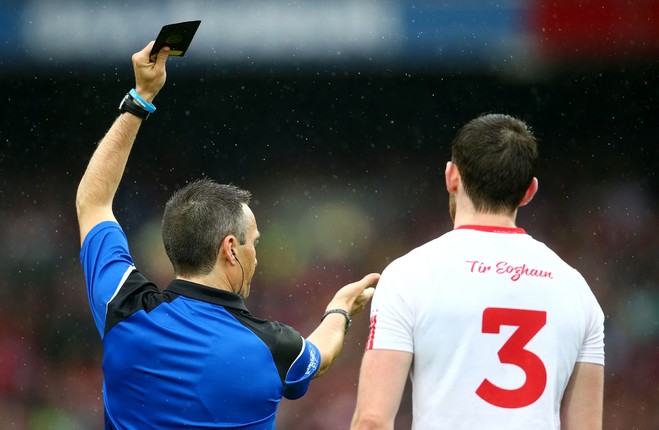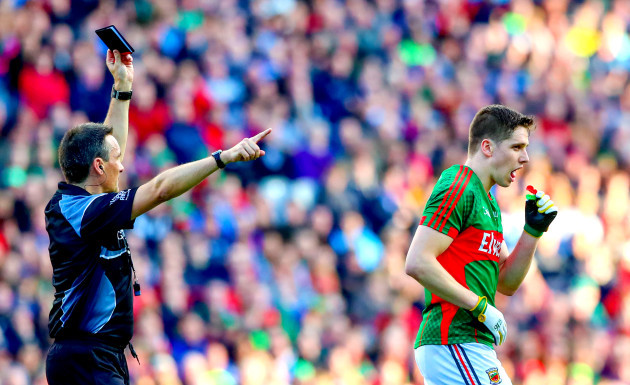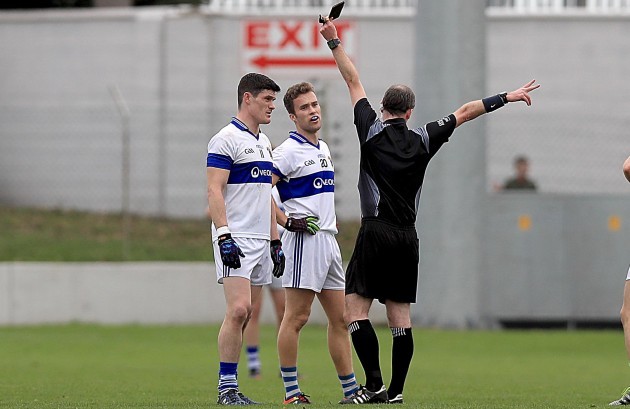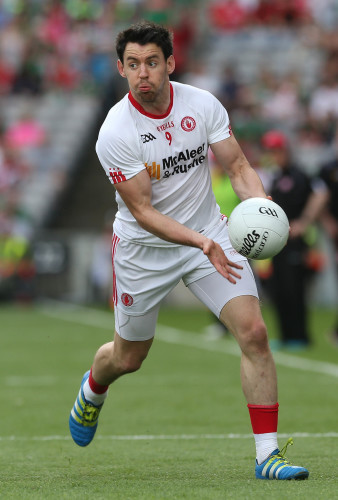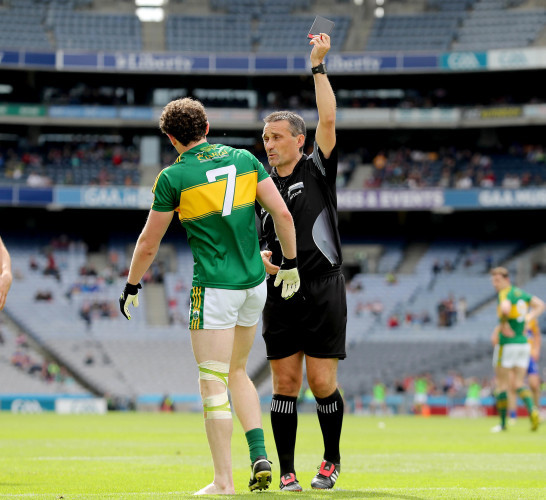A LEADING GAA official has hit out at the black card rule in Gaelic football, claiming it has failed players, match officials and administrators.
In his annual report to county convention – which takes place next Tuesday 13 December – Tyrone secretary Dominic McCaughey has heavily criticised the black card, which has been in place for the last three seasons.
Tyrone lost two players to black cards during their Ulster final triumph in July when Mattie Donnelly and Cathal McShane were both penalised.
“We vividly recall the background to the calls for the introduction of the black card and the manner in which it was enthusiastically and emotionally proposed, together with selective video clips, at national Congress in 2013,” outlines McCaughey.
“By adopting the black card we were led to believe that almost all the perceived ills of the game would be cured from 2014 onward.
“The black card has been a failure for the association in all respects; it has failed our players, our match officials, our disciplinary administrators and it has failed to diminish or eliminate cynical behaviour in football.”
McCaughey believes there is ‘a clear and significant discrepancy’ in the penalty of the black card while also stating that referees are in ‘an impossible situation’.
“Players have suffered unnecessarily by both the application of the black card and by the misapplication of it.
“There is a clear and significant discrepancy in the severity of the penalty that applies to a player receiving a black card in added time at the end of a game compared with the player who receives it in the opening quarter of a match – this is unfair.
“Match officials are almost always placed in an impossible situation in making a determination as to whether the appropriate threshold of deliberateness has been reached in order to merit the imposition of a black card.
“Often a judgement must be made at quite a distance from an incident that has taken place in a period of time, measured in seconds – it is unfair to ask the match officials to do so.
“There is also a major lack of consistency among referees in their perceptions of what infraction merits a black card.”
The Tyrone official also expresses the view that the black card has not eradicated cynical fouls.
“Regrettably, there is no evidence to indicate that the black card has been successful in eliminating the deliberate fouls associated with cynical behaviour at both club and county levels.
“One example from the available evidence is quite contrary: that 37 black cards were issued to players in 21 inter-county games during a peak period of championship activity last summer (9th July – 1st August).
“Perhaps the black card can be set aside now for all deliberate cynical behaviour fouls, in the same way that it has never been applied for the so-called ‘sledging’ infraction, nor for the infraction of remonstrating in an aggressive manner with a match official.
“If it retains its place in the Official Guide then the application of the rule, and the misapplication of the rule, will continue to be the subject of discussion during and after games -rather than the game itself, or the quality of the performance, or the level of skills on display.
“The after-match focus by supporters, players, analysts and the media should always be on the game; it should not be on a rule.”
The42 is on Instagram! Tap the button below on your phone to follow us!
